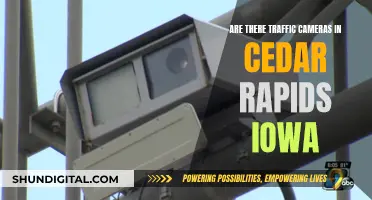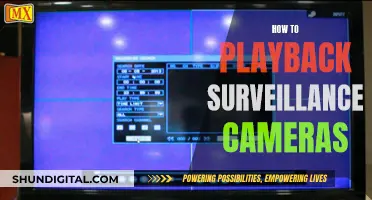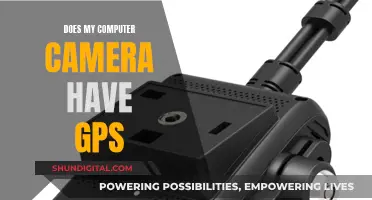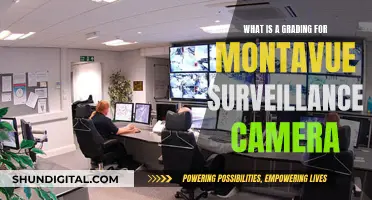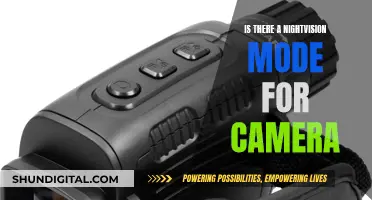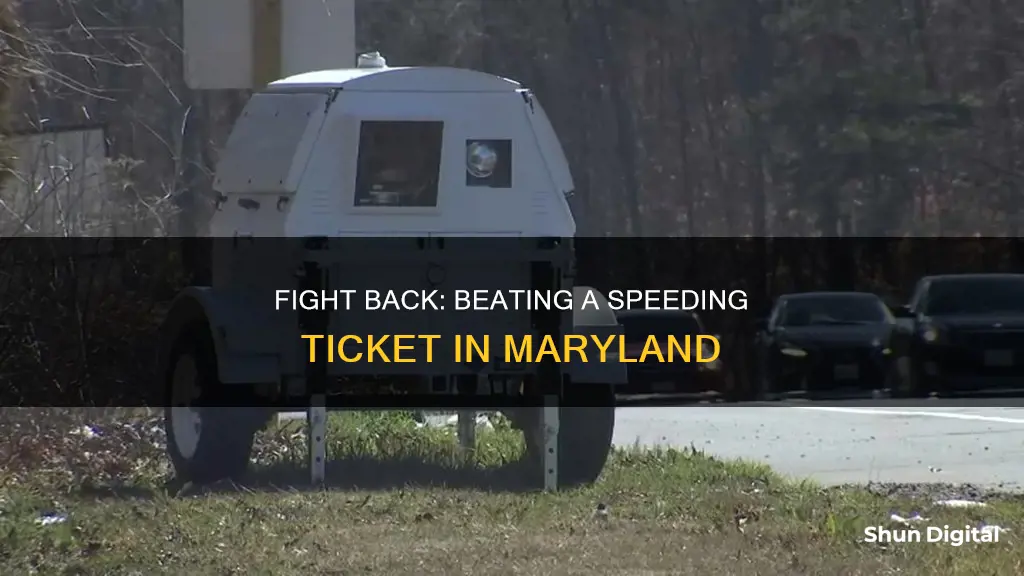
If you've received a speeding ticket in Maryland, you may be wondering what to do next. The good news is that you have options: you can pay the fine, plead guilty with an explanation, or request a trial. However, before you make any decisions, it's important to understand the process and your rights, especially since speed cameras are fallible and errors can occur. This guide will provide an overview of how to beat a camera speeding ticket in Maryland, ensuring you navigate the situation effectively and confidently.
| Characteristics | Values |
|---|---|
| Camera Speed Ticket Fine | $40 |
| Points on License | No |
| Criminal Matter | No |
| Insurance Notified | No |
| Contest Ticket | Yes |
| Time to Contest Ticket | 30 days |
| Contest Options | Plead guilty with an explanation, or request a trial |
| Evidence | Photographs of the area, maintenance records of the camera, statements from passengers or witnesses |
What You'll Learn

Contest the ticket
Contesting a Camera Speeding Ticket in Maryland
If you receive a camera speeding ticket in Maryland, you have the right to contest it. Here are some reasons to fight your ticket instead of simply paying the fine:
Camera Error or Technical Issues:
Speed cameras, like any technology, can malfunction or produce erroneous results due to calibration issues or other technical glitches. Contesting the ticket allows you to challenge the accuracy of the evidence presented. Request maintenance and calibration records to verify if the camera was functioning correctly when your alleged violation occurred.
Improper Signage:
For speed camera tickets to be valid, proper signage must be in place to inform drivers of speed limits and the presence of speed cameras. If the signs were missing, obscured, or placed incorrectly, you have grounds to dispute the ticket. Ensure that all signage complies with legal standards.
Exercise Your Right to Due Process:
By contesting the ticket, you can present your case in court and scrutinize procedural errors or mistakes in ticket issuance. Tickets may be dismissed due to procedural flaws, such as incorrect information on the citation or improper issuance practices.
Avoid Fines and Insurance Increases:
While camera speeding tickets in Maryland don't add points to your driving record, accumulating multiple tickets can indicate risky driving behaviour, potentially leading to higher insurance premiums. Contesting the ticket can help you avoid these additional costs.
Maintain a Clean Driving Record:
Even though camera speeding tickets don't add points to your license, maintaining a clean driving record is important. Challenging the ticket can help you avoid any negative marks, preserving your driving history and preventing future complications.
Steps to Contest a Camera Speeding Ticket:
Request a Hearing:
When you receive a camera speeding ticket, it will include information about the violation and instructions on how to pay the fine or dispute it. Decide to contest it by requesting a hearing, usually done by mail, online, or by phone within the specified timeframe, typically within 30 days.
Gather Evidence:
Collect evidence to support your case, such as photographs of the violation area, maintenance records of the speed camera, and statements from passengers or witnesses.
Documentation:
Bring relevant documentation, including the ticket, vehicle registration, and correspondence related to the ticket.
Challenge the Camera's Accuracy:
Question the accuracy of the speed camera by requesting maintenance and calibration records. Argue that the camera captured the wrong vehicle and provide evidence that you were not in that location at the time.
Signage Issues:
Dispute the ticket by arguing that the signage was missing, obscured, or incorrectly placed. Take photos of the current state of the signage to support your claim.
Hearing Preparation:
Prepare your presentation by organising your evidence and arguments clearly. The judge will examine the evidence and listen to your argument and the prosecution's case. They may ask questions for clarification. The judge will then decide to uphold the ticket, reduce the fine, or dismiss it.
The Demise of Kodak's Disposable Cameras
You may want to see also

Provide evidence you weren't driving
If you were not the person driving the car when the speeding ticket was issued, you can provide evidence to support this claim. This evidence may include:
- A certified statement from your employer stating that you were at work at the time of the violation.
- Documentation from a medical professional stating that, due to disability or sickness, you were in the hospital or at a doctor's office at the time of the violation.
- Testimony from witnesses who can confirm that you were not driving.
It is important to gather as much evidence as possible to support your claim. This may also include an alibi or any other information that can help prove your innocence.
Keep in mind that simply providing evidence that you were not driving is not enough to guarantee a successful dispute. The judge will consider all the evidence presented and make a decision based on the information available. It is also worth noting that the process of disputing a speeding ticket can be challenging, and you may benefit from hiring a traffic violation attorney or speeding ticket attorney to assist you in mounting a strong defense and ensuring that you have proper documentation to support your case.
Understanding Camera Raw's Haze Removal Tool
You may want to see also

Challenge camera accuracy
While speed reading instruments used in Maryland are generally accurate and difficult to discredit, there are some effective defenses that a traffic lawyer can raise against speed reading instrument readings, as well as pacing evidence.
Speed cameras can sometimes malfunction, and it is within your rights to challenge the citation. You must contest the ticket at least five days before the due date of the fine. Challenges will be heard in the Maryland District Courts, and specific details about how to challenge tickets are listed on the back of each citation.
One possible defense is the lack of officer training. Most modern radar units are easy to operate, and officers using them do not need to be certified or licensed. However, using a radar gun takes practice and skill. Your attorney can ask if the officer had comprehensive instruction from an experienced instructor. It is a negative point for the prosecution if the officer had no formal instruction in using radar equipment.
Another possible defense is improper calibration of the equipment. A radar gun must be checked for accuracy against an object traveling at a known speed. If the speed on the equipment matches the known speed, then the unit is properly calibrated. Some courts hold that the only acceptable method of calibrating a radar unit is to use a certified tuning fork as the moving object. Your attorney can ask how the radar gun was calibrated before the officer used the equipment to determine your speed.
There are other ways that Maryland police officers can produce false radar readings. For example, an officer may not realize that from a few hundred feet, a radar beam is wide enough to cover multiple lanes of traffic. The officer could have clocked a nearby vehicle instead of yours. This is why it is important to determine what kind of instruction, if any, an officer was given in terms of using the equipment.
There may also be a mistake in the reading of another vehicle’s speed if a nearby vehicle is larger than the vehicle being targeted. If a large vehicle, such as a truck, is rapidly coming up behind a smaller vehicle in the same lane, the officer may see the car while the radar instrument is reading the truck’s speed.
Errors may also occur due to adverse weather conditions. Windy days, when leaves are blown about, can be read by radar devices. Heavy rain can also give false signals. The more rain or wind at the time of the reading, the more likely an erroneous radar reading will result. It is helpful to have the police report to prove these defenses. On police reports, there is a description of the weather, and officers are required to write down any adverse weather conditions.
Mastering Camera Raw Exports: Tips and Tricks
You may want to see also

Argue signage issues
To beat a camera speeding ticket in Maryland, you can argue signage issues. Here's a detailed guide on how to do that:
Understand the Requirements for Signage
Before building a case, it's important to understand the legal requirements for signage related to speed cameras in Maryland. Maryland law requires that speed cameras are only used in specific locations, such as residential areas and school zones, where the posted speed limit is 35 miles per hour or less. Proper signage must be in place to inform drivers of both the speed limit and the presence of speed cameras. The signs must be clearly visible and placed at the correct locations to ensure drivers can easily see and interpret them.
Identify Any Signage Issues
When you receive a camera speeding ticket, carefully examine the area where the alleged violation occurred. Look for any issues related to the signage. Common problems include missing signs, obscured or blocked signs, or signs that are incorrectly placed. For example, a tree branch may be blocking the speed limit sign, or the "photo enforcement" sign may be placed too far from the speed limit sign. Take detailed notes on any issues you identify, as you'll need to present this information in your defense.
Gather Evidence
Once you've identified the signage issues, gather evidence to support your claim. Take photographs of the signage and its location, ensuring that the photos clearly show any problems, such as obstruction or incorrect placement. Get measurements or estimates of distances between signs and their locations relative to the speed camera. If possible, obtain statements from witnesses who can attest to the signage issues. For example, if a sign was blocked by a tree branch, find someone who can confirm that the branch was obstructing the view of the sign.
Build Your Case
Consult a traffic attorney to help you build a strong case. They will guide you through the process and ensure you have all the necessary evidence. Your attorney will review the specifics of your case, including the photographs, measurements, and witness statements. They will identify any procedural errors or mistakes in the issuance of the ticket and develop a legal strategy to challenge the evidence presented against you. A qualified attorney will know the relevant laws and requirements inside out and can identify any discrepancies or violations.
Present Your Defense
When you appear in court, present your defense clearly and concisely. Explain the specific signage issues you identified and how they impacted your ability to comply with the speed limit or understand the presence of the speed camera. Provide the judge with the evidence you've gathered, including photographs, measurements, and witness statements. Highlight any procedural errors or discrepancies between the signage and the legal requirements. Remember that the burden of proof lies with the prosecution, and you have the right to challenge the accuracy and validity of the evidence presented against you.
Understand the Potential Outcomes
Challenging a camera speeding ticket on the basis of signage issues can result in a few potential outcomes. The judge may uphold the ticket if they find that the signage was proper and met the legal requirements. Alternatively, the judge may reduce the fine or dismiss the ticket entirely if they find that there were indeed issues with the signage. It's important to remember that each case is unique, and the outcome will depend on the specific circumstances and the strength of your defense.
Disabling Night Owl Cameras: Display Mode Tips
You may want to see also

Avoid fines and insurance increases
While a single speed camera ticket in Maryland will not add points to your driving record, accumulating multiple tickets can indicate risky driving behaviour, which may lead to higher insurance premiums. Therefore, it is in your best interest to contest the ticket and avoid any fines or potential increases in your insurance rates.
Contesting the Ticket
You have the right to contest a speed camera ticket in Maryland. The ticket will include information on how to pay the fine or challenge it. To contest the ticket, you must request a hearing, typically done by mail, online, or by phone. Ensure you make this request within the specified timeframe, usually within 30 days of receiving the citation, to avoid additional penalties or fees.
Evidence and Documentation
Gather any evidence that supports your case, such as photographs of the area where the violation occurred, maintenance records of the speed camera, and statements from passengers or witnesses. Bring relevant documentation, such as the ticket, vehicle registration, and any related correspondence.
Challenging the Accuracy of the Camera
You can challenge the accuracy of the speed camera by requesting maintenance and calibration records. If the camera that captured your alleged speeding violation was not properly maintained or calibrated, the recorded speed may be inaccurate.
Signage Issues
Check if the signage was missing, obscured, or incorrectly placed. Take photos of the current state of the signage and argue that proper signage must be in place to inform drivers of speed limits and the presence of speed cameras.
Mistaken Identity
If you believe the camera captured the wrong vehicle, gather evidence to prove that you were not driving in that area at the time. This may include a certified statement from your employer or documentation from a medical professional.
The Evolution of Cameras: From First Invention to Now
You may want to see also
Frequently asked questions
The standard fine for a speed camera ticket in Maryland is $40. While these tickets are considered civil violations and do not add points to your driving record, ignoring them can lead to additional fines and penalties, and even legal action.
You have three options: pay the fine, plead guilty with an explanation, or request a trial. If you choose to contest the ticket, you must do so within the specified timeframe, typically within 30 days of receiving the citation.
To contest a speed camera ticket, you must request a hearing, typically by mail, online, or by phone. You will need to gather evidence to support your case, such as photographs, witness statements, and maintenance records of the speed camera. You can also challenge the accuracy of the camera and argue against any signage issues.
You can challenge the accuracy of the camera by requesting maintenance and calibration records. You can argue that the signage was missing, obscured, or incorrectly placed. If the camera captured the wrong vehicle, provide evidence that you were not driving in that area. Highlighting procedural errors, such as incorrect information on the citation, can also help your case.
During the hearing, you will need to present your evidence and arguments clearly to the judge. The judge will examine the evidence and listen to both your argument and the prosecution's case before making a decision. The outcome may include upholding the ticket, reducing the fine, or dismissing the ticket entirely.


